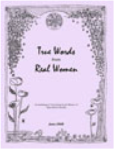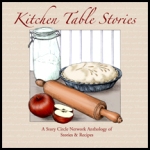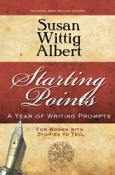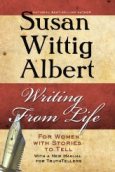by Sheila Bender
As adults, we are so used to summarizing and editorializing. We have learned that abstractions are considered “smart” in writing and having opinions makes us sound even smarter. That’s what our teachers wanted from us on papers and on essay tests.
But creative writing, whether that is in poetry, fiction, personal essay or in longer memoir, requires something different. It requires that we create (or re-create) experience on the page and the thing is, that experience is not a summary or an abstraction. It is something we live via our five senses: we see, hear, taste, touch, and smell. We take the world in through the images these senses supply for us, but we do of course select the ones that will “build” the experiences we are writing about. Writing is a made thing, a shaped thing. As writers, we seek that shape and choose the images that will create the experience we are conveying (or are learning that we are compelled to convey).
So often, if we let our senses land on images around us, we learn more about what we are feeling, what we know, what we yearn for and the depth of it all, than we could have imagined had we not let ourselves write the experience of our senses.
Before we can do this skillfully, though, we must learn to trust ourselves at finding and using images.
One of my favorite exercises is to look out my window and write five sentences, one for each of the senses. For instance, one day in May I looked out my studio window on a day when the sun was shining after days of rain, I wrote:
Today bunches of Shasta daisy leaves cluster inside a ring of orange calendula blossoms. When I open the door of my study, I hear the honking of the Canadian Geese gathered on the beach I cannot see from here. I remember the friend who I shared poems with, who gave me Welsh poppy seeds because the plants grow in shade and there is much of that on the path to my study. I want to talk to her, though she has been dead now five years. I want to tell her that the poppies are increasing, that in her memory I cannot thin them, must feel them as I brush past. Then the memory of another friend who said she could smell the dust in my house and asked if I could smell it, too. Now I walk the path to my house to warm up yellow soup, let Indian curry spices fill my empty mouth.
If I gave this a title, say, “At the End of May,” because that is when I was writing this, I might have a prose poem. I think the beauty and the sadness of losing a treasured friend, the flirting with thinking about my mortality in the dust image and the speechlessness we feel when we consider the mystery of death all resonate again in the fact that I am writing this at a particular time of year, when so much is blooming and coming to life. But it is the end of May and that word “end” honors the transmigratory (oh, those geese!) nature of our lives.
Really, I sat down to write five sentences, one each for each of the five senses. I found I needed a few more (eight in all) to express what I needed to about my deceased friend and the one I share time with now who reminds me everything is transitory.
I let myself break the rules of my assignment, remaining conscious, however, when I had no more to say that I hadn’t put taste in the piece yet. Searching for taste, I found that the path I’d described with poppies was useful for getting to the taste and for closing the piece–I had walked it to my study and then I would walk it back to the house. I found that where I would put the soup, into my mouth, felt more correct with the modifier “empty.” It just seemed to go with missing my friend amidst the glory of the garden and the day.
Look out your window. Tell yourself you will write at least five sentences, one devoted to each of your senses. See what happens–something will.





